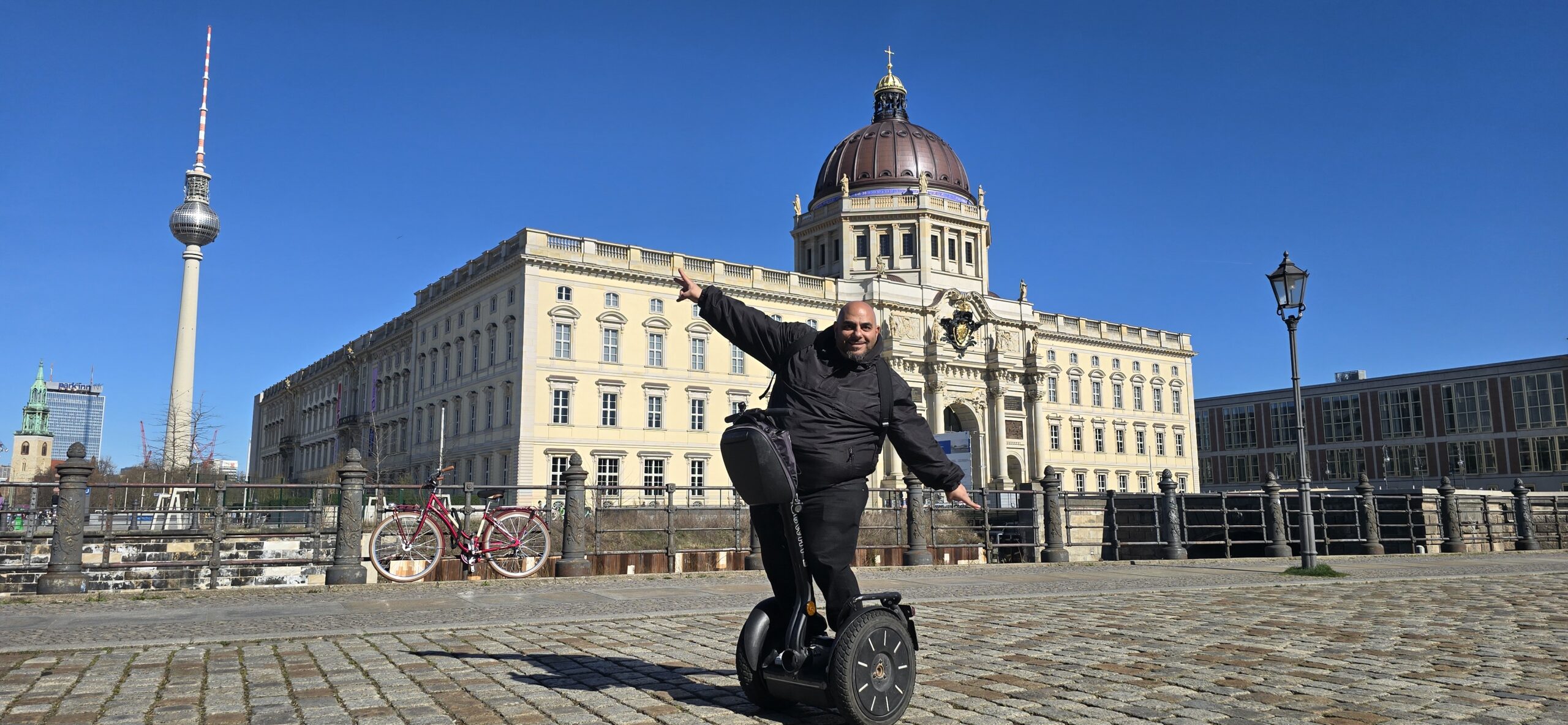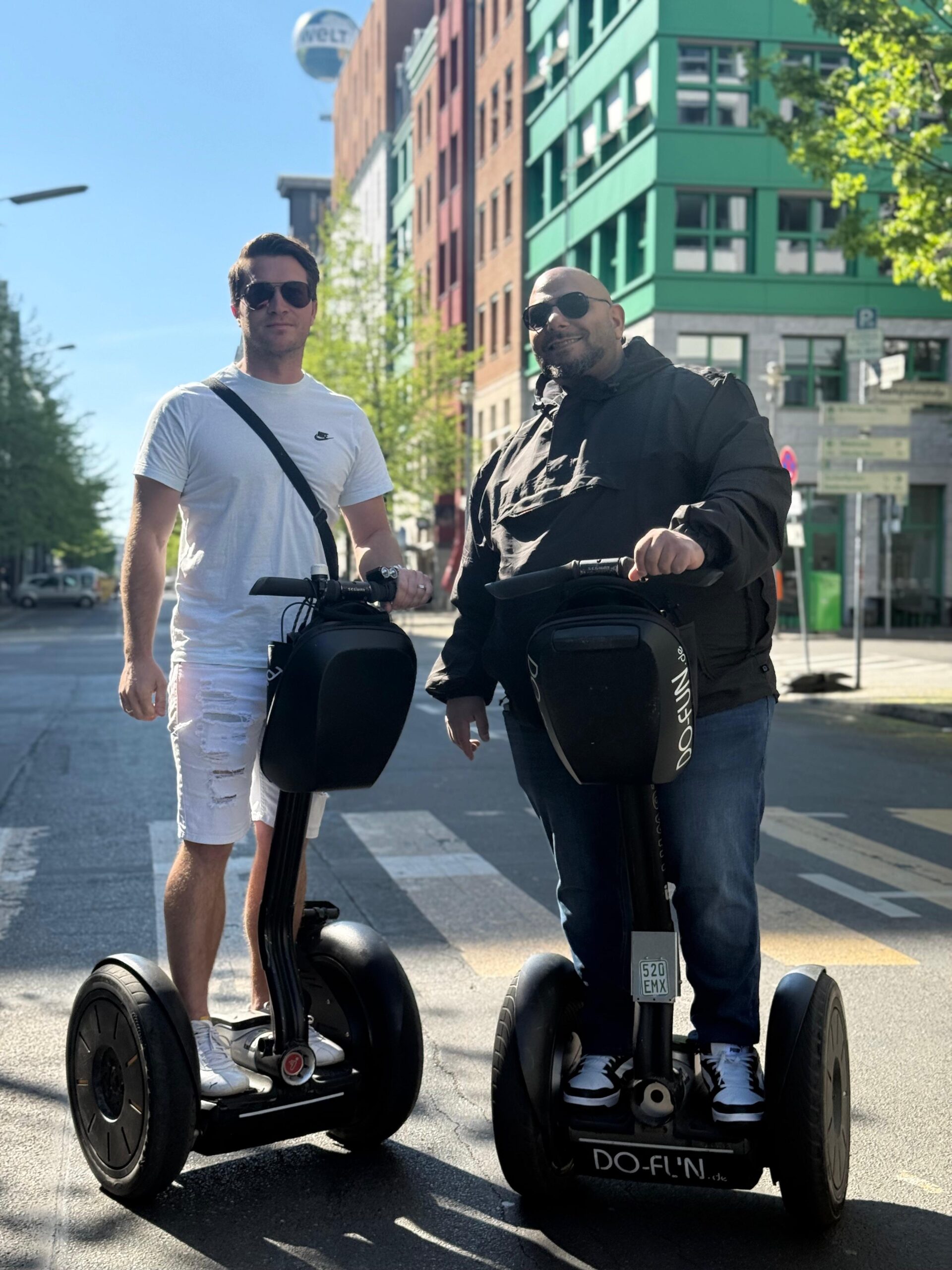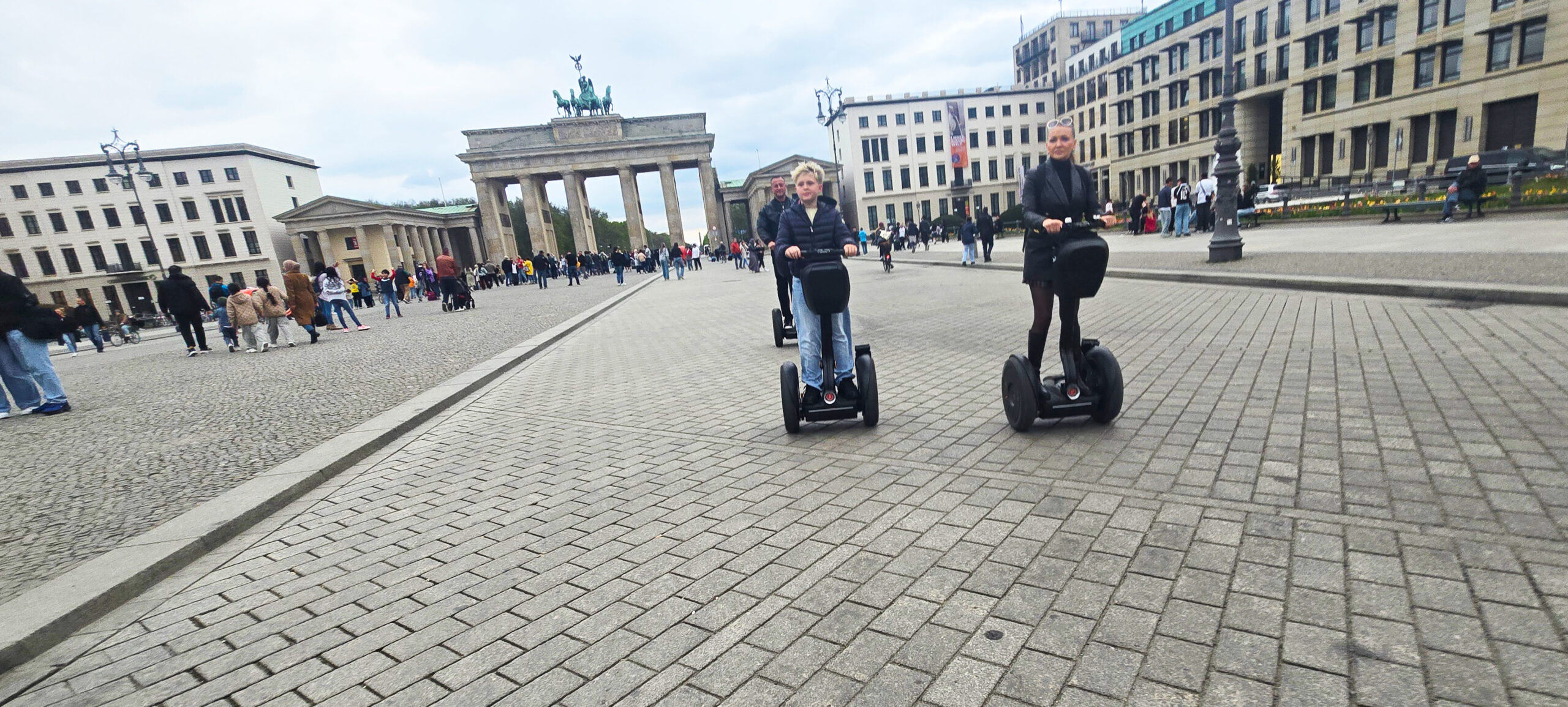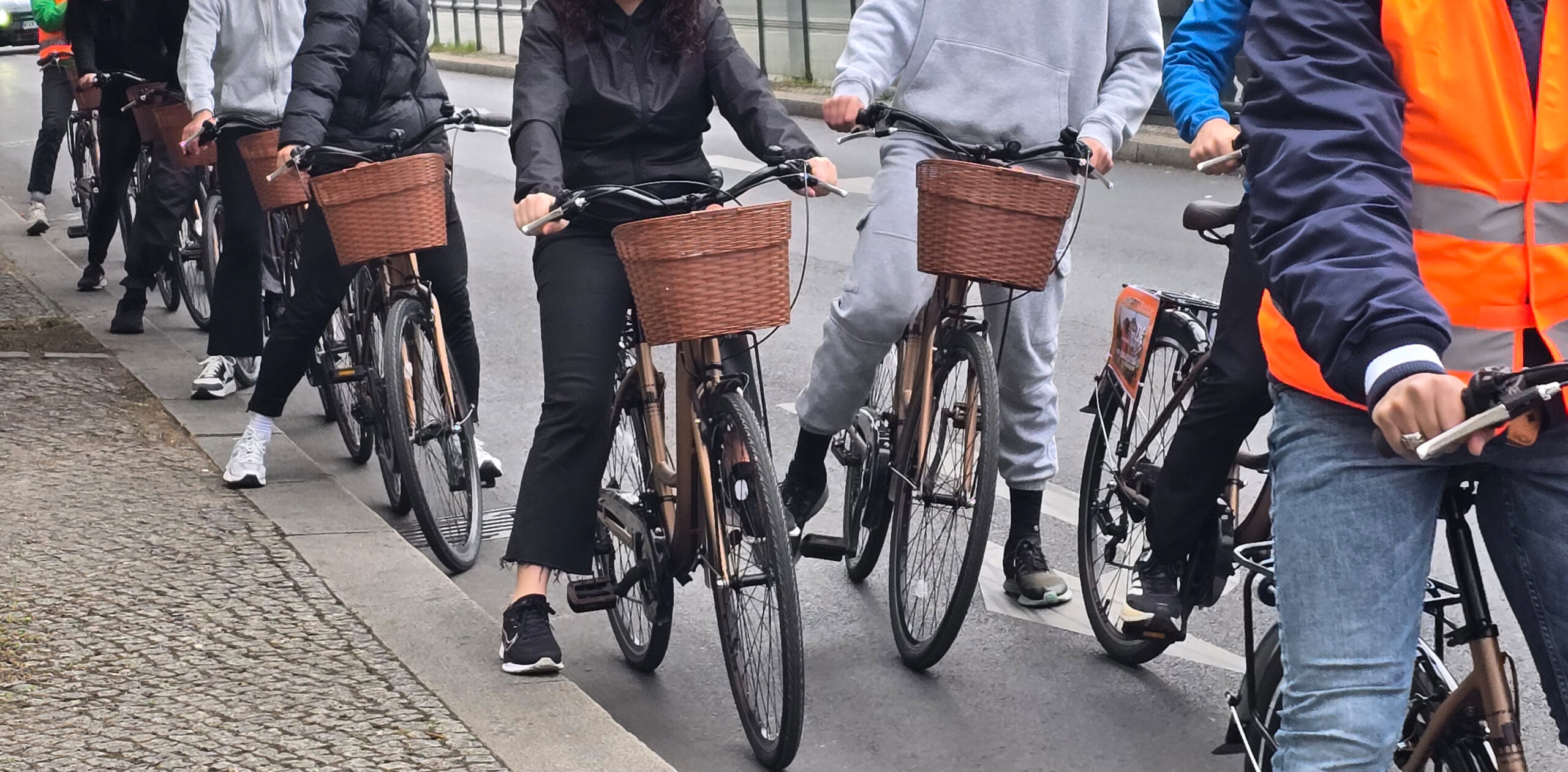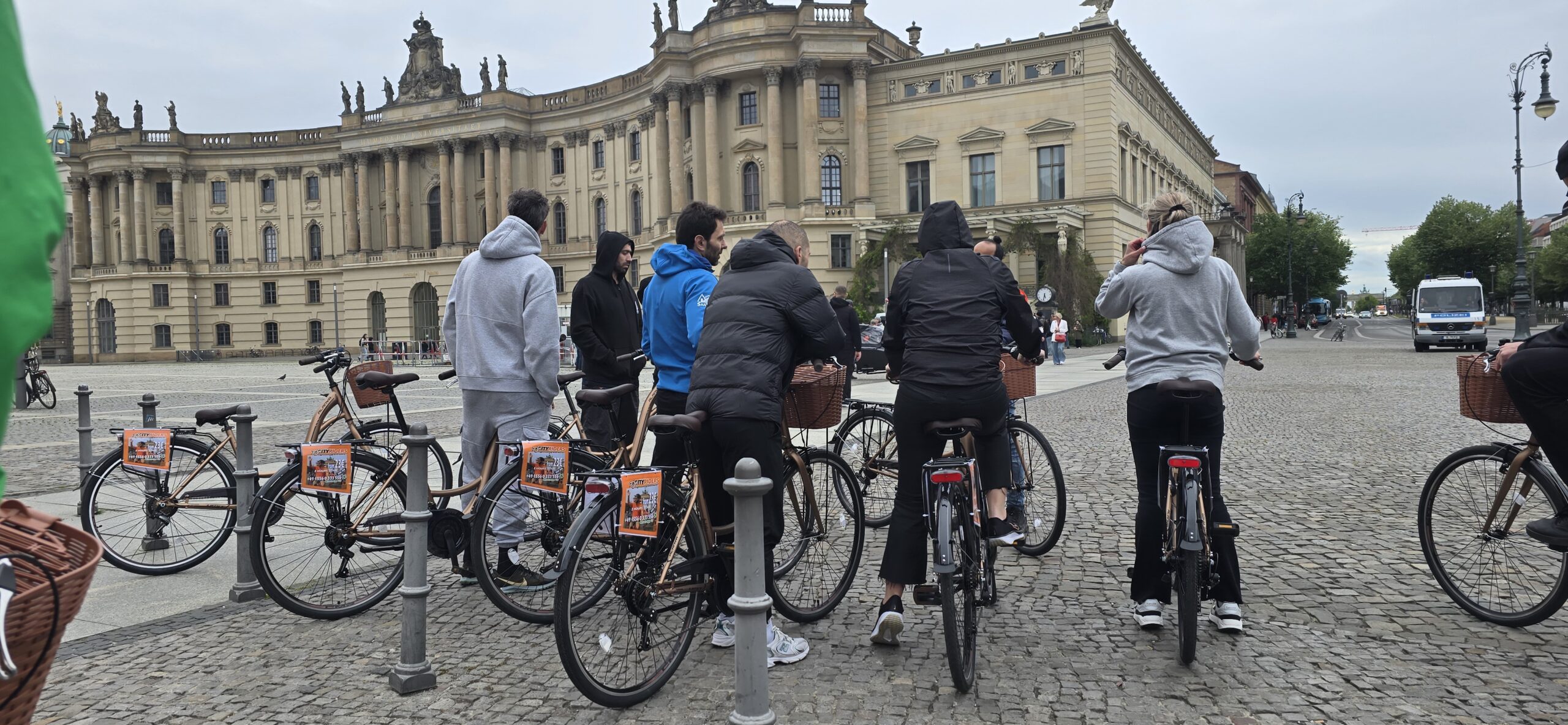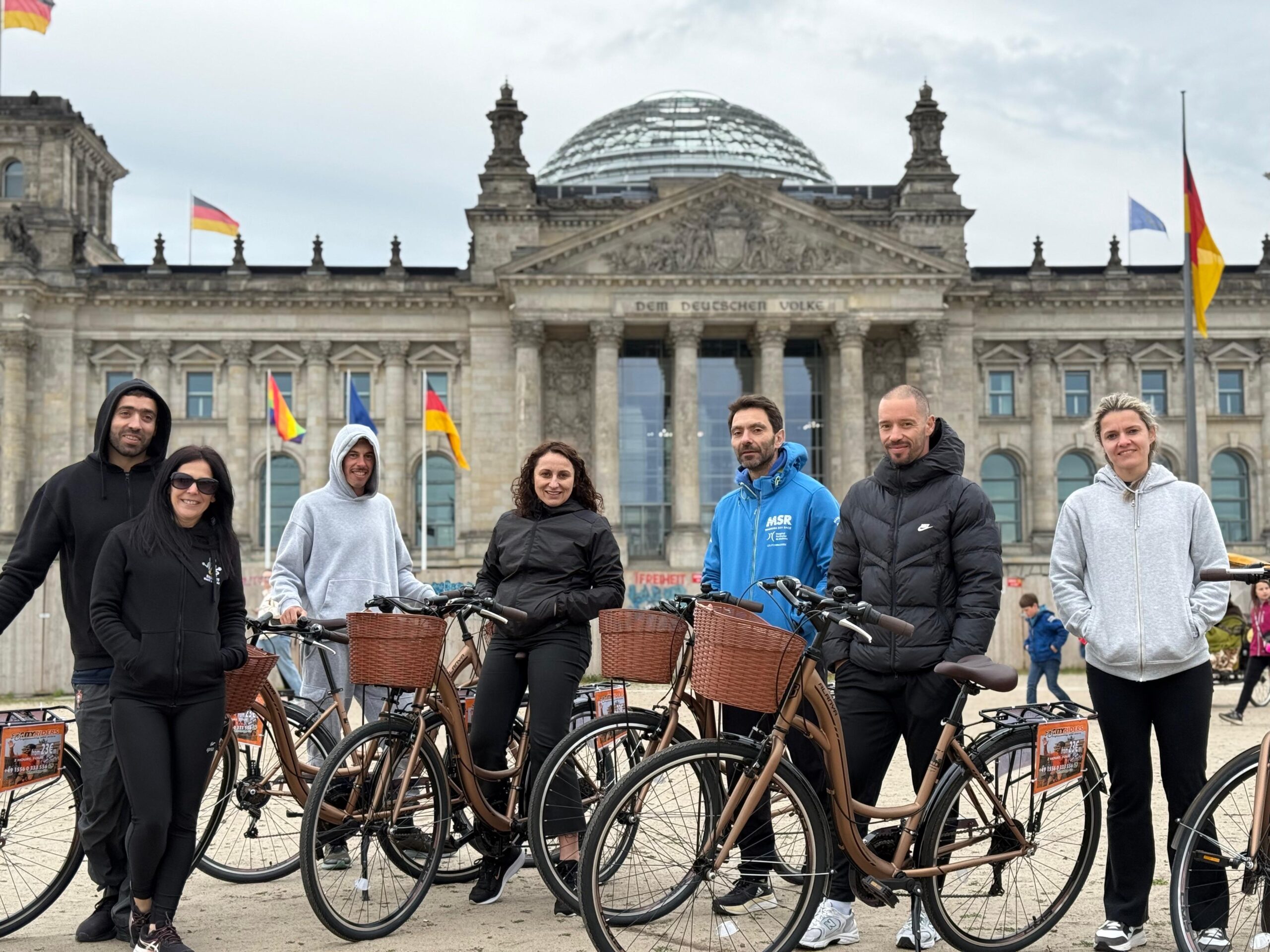Group Tour Berlin: Guided Bike Tour “East Kisses West – Ride Through the Heart of the City” – Up to 6 People (Special Offer)
This tour offers you a perfect overview of the heart of the capital. From vibrant city life to places steeped in history and hidden corners that even many Berliners discover anew.

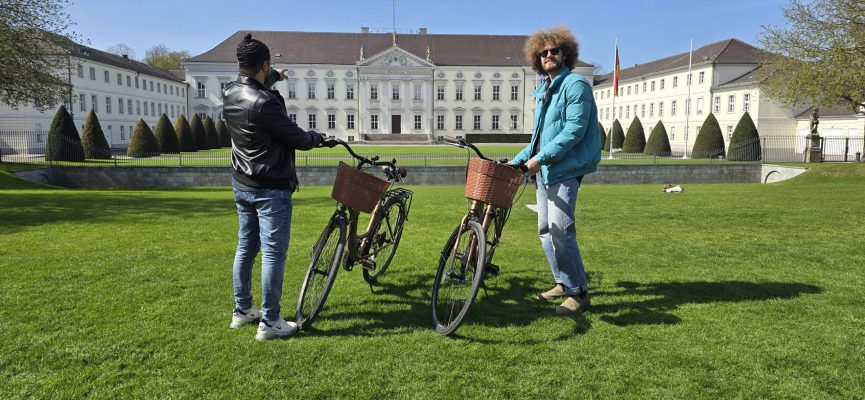
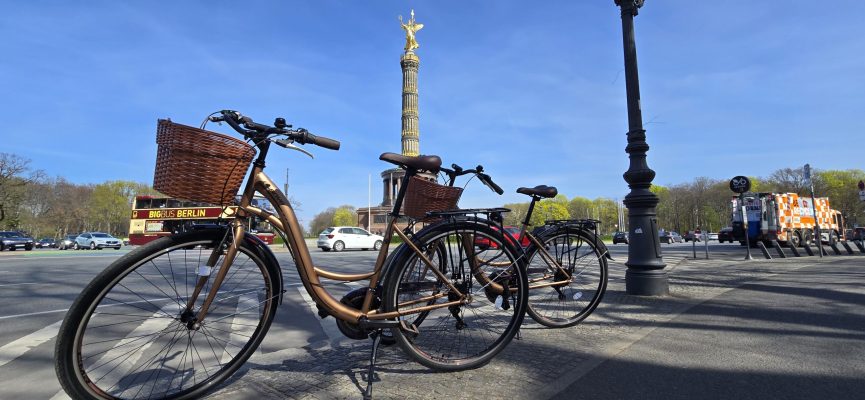
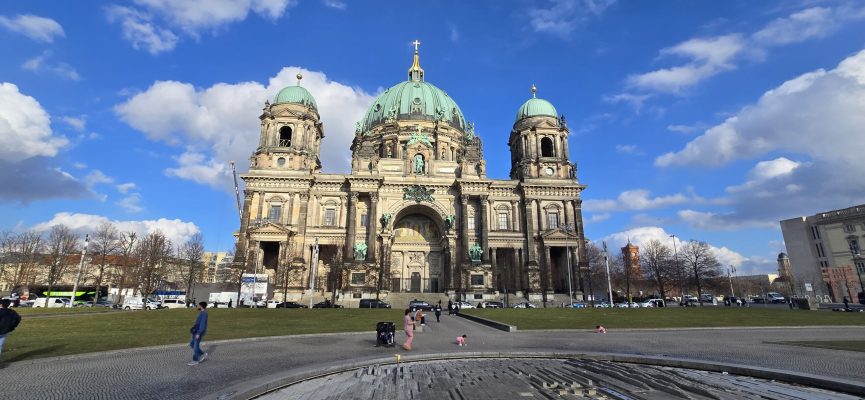
Duration
2.5 Hours
Max. People
6
Meeting Point
Lindenstraße 28, 10969 Berlin
Overview
Discover Berlin in a small group – in-depth, historical, and personal.
This 2.5-hour guided bike tour through Berlin is ideal for groups of up to six people and takes you along the historic border between East and West.
With a knowledgeable local guide, you’ll experience a private group bike tour to Berlin’s most famous landmarks – including the Brandenburg Gate, Checkpoint Charlie, and the government district.
The tour combines history, urban development, and cultural highlights into a compact and memorable Berlin experience.
Whether it’s a family outing, a get-together with friends, or a custom event – this special bike tour package for small groups offers an exclusive and flexible way to discover Berlin on two wheels.
Tour Highlights
Guided Small Group Bike Tour “East Kisses West”
-
A guided Berlin bike tour through East and West with a historical focus.
-
Personal guide for up to 6 participants – an intimate, small-group experience.
-
Visit to central landmarks and historically significant sites.
-
Includes a relaxing break at a café or in a park.
-
Ideal for private groups who want to experience Berlin actively and in a personalized way.
Included/Excluded
- Rental Bike
- Bike Helmet
Tourplan
Lindenstraße 28, 10969 Berlin
Checkpoint Charlie was the name given by the Western Allies to the most famous border crossing at the Berlin Wall between East and West Berlin during the Cold War and became a symbol of the Cold War, representing the division between East and West.
The Topography of Terror is a historical open-air and indoor museum in Berlin. It is located in Niederkirchnerstraße, formerly Prinz-Albrecht-Straße, on the site of buildings that housed the Reich Security Main Office of the SS, the headquarters of the Security Police, the SD, the Einsatzgruppen and the Gestapo during the Nazi regime from 1933 to 1945.
Potsdamer Platz is a public square and traffic junction in the center of Berlin, about 1 km south of the Brandenburg Gate and the Reichstag and near the south-eastern corner of the Tiergarten.
The Führerbunker was the name given to two of the underground air raid shelters in Berlin that served as Adolf Hitler's headquarters during the final weeks of the Nazi state. Hitler committed suicide in the Führerbunker.
The Memorial to the Murdered Jews of Europe, or Holocaust Memorial for short, in the historic center of Berlin commemorates the approximately six million Jews who were murdered under the rule of Adolf Hitler and the National Socialists.
The Reichstag building (colloquially: Reichstag; officially: Reichstag building plenary area; unofficially also Bundestag or Wallot building) on Platz der Republik in Berlin has been the seat of the German Bundestag since 1999. Since 1994, the Federal Assembly has also met here to elect the German Federal President.
The Brandenburg Gate is a neoclassical monument from the 18th century in Berlin. It is one of Germany's most famous landmarks and was erected on the site of a former city gate that marked the beginning of the road from Berlin to Brandenburg an der Havel, the former capital of the Margraviate of Brandenburg.
The Museum Island is an ensemble of five museums in the northern part of the Spree Island in the historic center of Berlin. It is one of the most important sights in the German capital and one of the most important museum complexes in Europe.
Bebelplatz (colloquially: Opernplatz) is a square named after the German social democrat August Bebel (1840-1913) in the Mitte district of Berlin. It was built from 1740 by order of Frederick the Great according to plans by Georg Wenzeslaus von Knobelsdorff in the Rococo style as part of the Forum Fridericianum.
Gendarmenmarkt is a square named after the Gens d'armes cuirassier regiment that was originally based here in Berlin's Mitte district of the same name. Created during the expansion of the city in 1688, it was destroyed during the Second World War and rebuilt between 1976 and 1993.
